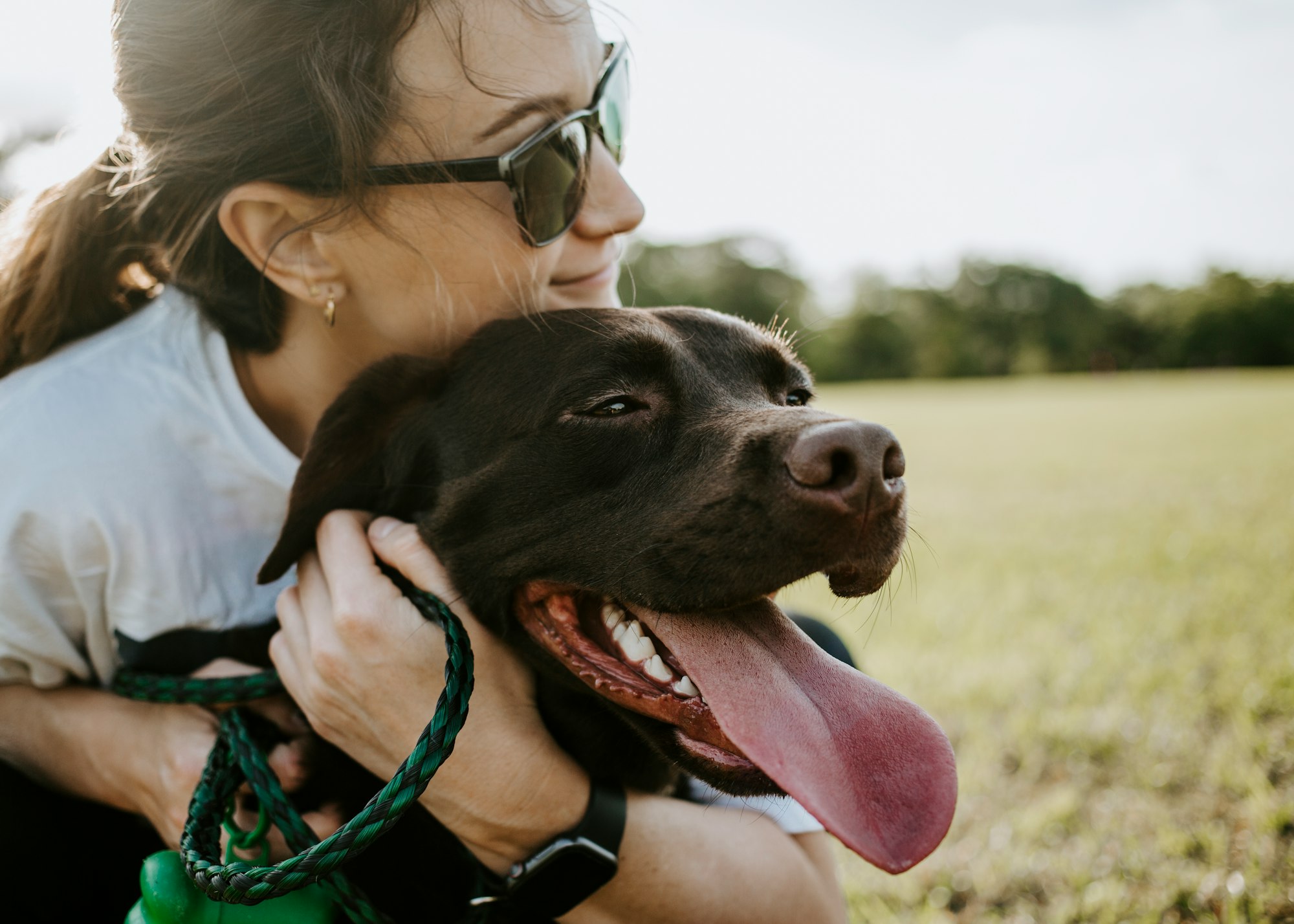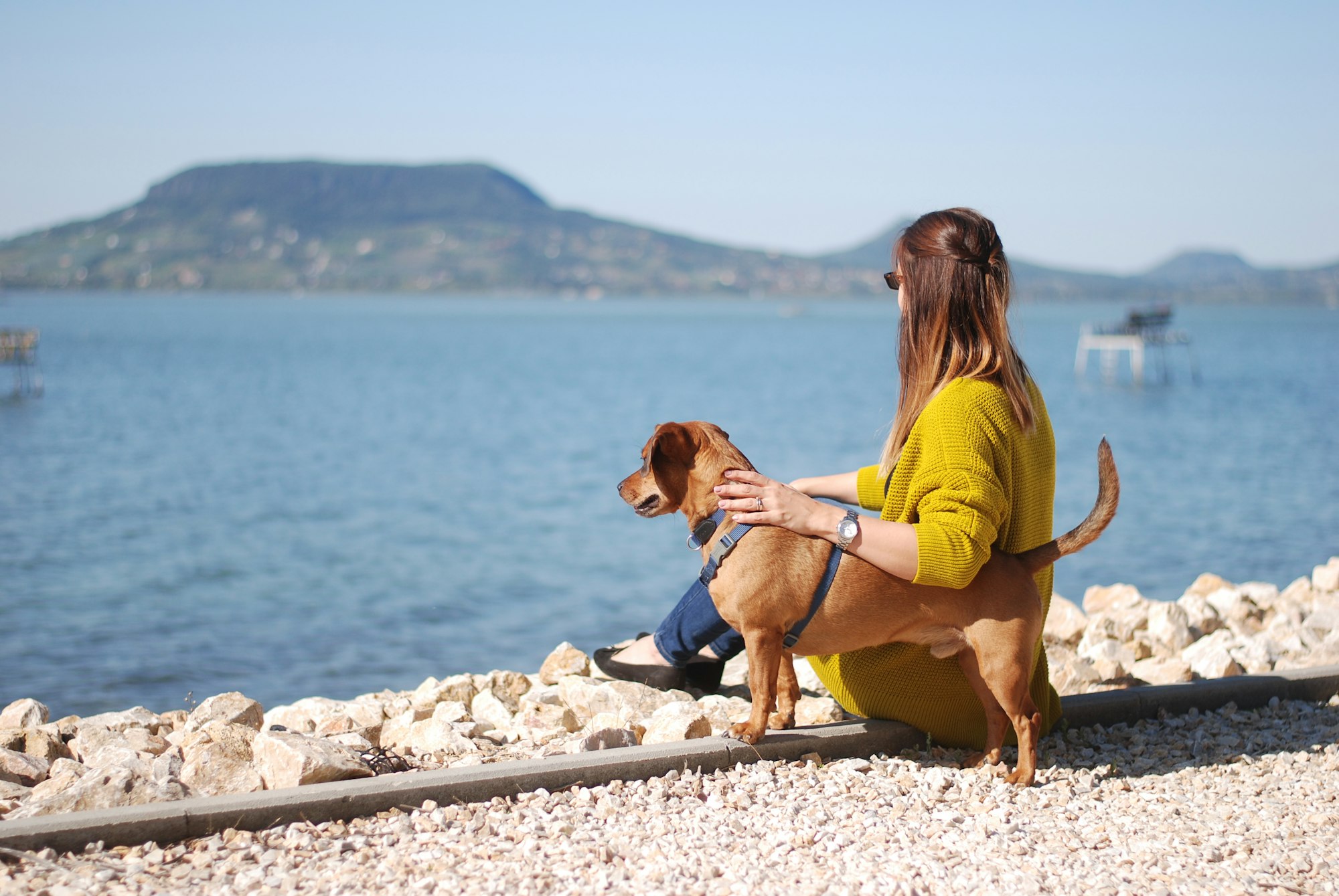Summertime means sun, beach, and lots of play outdoors with your dog or cat (did you know that adventurous cats are a growing trend?). Summer can be a great time to bond with your pet. But higher temperatures also mean higher risks for our furry companions - more injuries, more skin and ear infections, and a possibility of a heat stroke.
On July 13th, Petcube hosted a webinar led by Dr. Ross Bernstein (DVM, the Medical Director at Goleta Airport Pet Hospital, an Emergency Room doctor at Veterinary Specialty and Emergency Center of Thousand Oaks). We have focused on the topic "How to protect your pet in summer" and Dr. Bernstein discussed many aspects related to your pet's health during hot days.
Stop Googling - Ask a Real Vet
Such as knowing how to prevent your pet from the most common summer health risks, staying calm about your pet’s health, and no longer following the myths about pet protection during the hot season.
According to Dr. Ross Bernstein, the most common summer risks for your pet are:
- Overheating;
- Sunburn;
- Dehydration;
- Stroke.
Long story short, pets do not sweat in the same way humans do and can easily become overheated. To avoid these problems and enjoy the summer season with your pet, here’re the tips to keep in mind.
You can watch the recorded webinar on Petcube's Youtube page or directly from this article.
1. Provide plenty of water and shade
Dehydration in dogs and cats is a real possibility during the summer. Our dogs get much thirstier than we do when they get hot. Signs of dehydration include dry gums and excessive drooling.
Make sure your pet always has access to fresh, clean water inside the house, and bring a bottle for your furry companion when going outside, just like you do for yourself. You might also switch to wet dog food during the hotter months to increase fluid intake.
Keep your pet in the shade as often as possible. While dogs and cats like to sunbathe, direct sunlight can overheat them (especially dogs) and lead to heat stroke.
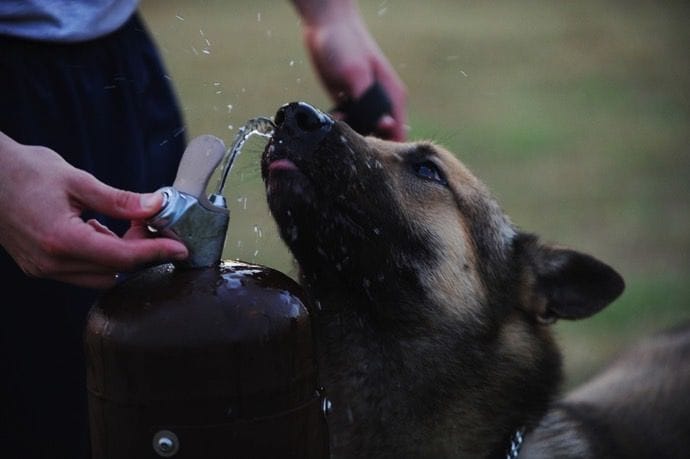
2. Know the signs
You may have asked yourself: how hot is too hot for cats? Or - how hot is too hot to walk dogs? What temperature can a cat tolerate? A dog's normal temperature is between 100° and 103°F, while a normal temperature in cats ranges from 100.4º to 102.5ºF. Anything higher than that means your pet’s in danger.
So do cats sweat? No, dogs and cats don’t sweat as we do. They drink water and pant to bring down their body temperature.
Watch for these possible symptoms of overheating:
- Heavy panting;
- Dry or bright red gums;
- Thick drool;
- Vomiting;
- Diarrhea;
- Wobbly legs.
Read more: Why Is My Cat Vomiting?
Read more: When Bark Becomes Barf: An Essential Guide To Dog Vomiting
If your pet shows signs of heat exhaustion, move them to a cool place, give them a drink of water, put a damp towel over their body, and get them to the vet asap. Don’t place your pet in cold water, that can put them into shock.
3. Never leave your pet in the car
Most pets love riding in cars. But they wouldn’t enjoy being stuck in it somewhere in the parking lot when it heats up to over 100 degrees. You may think leaving your pet in a car for a few minutes is no big deal.
However, it can take less than 10 minutes to develop heat stroke in dogs and cats inside a hot vehicle. So make sure if you have to go out of the car, always leave dog in car with AC running, but it would be best not to do it at all, if possible.
Leaving your pets in cars is not only dangerous to your pet, but it is also illegal in 16 states that have specific “hot car” laws. So, either take your pet with you or leave it at home. If you see a pet left alone in a car under dangerous conditions, take action immediately - try searching for the owner asap or even call the police.
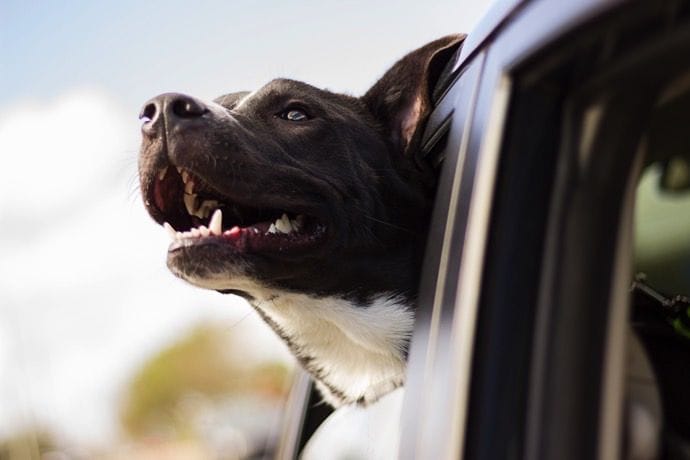
4. Apply sunscreen
Believe it or not, pets get sunburns too, especially those with short or light hair coats. And just like with people, it hurts and can even lead to skin cancer. If you are planning to spend a day out in the sun with your furry companion, apply sunscreens every 3-4 hours to the least hair-covered spots: bellies, ears, and nose.
Use only sunscreens made specifically for pets. Pets tend to lick it and sunscreen made for humans can include the components that are toxic for animals (like zinc) and this can cause an emergency situation.
Your vet could advise on the product suitable for your pet fur kid.
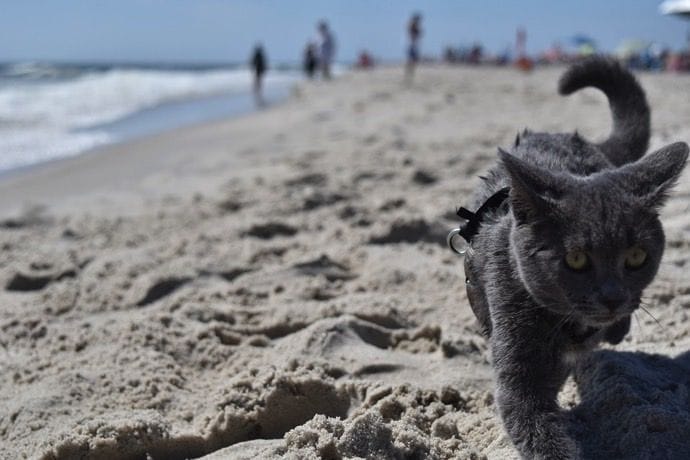
5. Don’t shave your pet
You might think shaving your dog a cat for the summer is the best solution to overheating. But a pet's coat is naturally designed to keep it cool during the summer and warm in the winter. Feel free to trim the fur on your pet in the summer, but never shave. Be sure to leave at least a full inch of hair to protect your pet’s skin from sunburns. And don’t forget about your pet’s regular grooming schedule, no matter what season it is.
6. Mind your walking hours
If you have a dog, walk and exercise your pup only in the early morning and late evening. When is it too hot to walk a dog? Never do it in the middle of the day. When outside, take breaks in the shade and have water available.
7. Keep your dog's paws cool
Pets heat and cool from the bottom up. If you’re out in the sun together, try to keep your pet off of hot surfaces like cement and asphalt. Not only can it burn paws, but it can also increase body temperature and lead to overheating. It’s also not a good idea to drive around with your dog in the back of a truck – the hot metal can burn paws quickly.

When spraying your dog with water, make sure to spray the paws and stomach to cool them down quicker. If you are using a wet towel, it’s better to rub their paws and stomach than top coat.
If you can't walk your dog during the early and later hours of the day, doggy boots are a good way to protect their paws.
8. Keep parasites off
In summer, fleas, ticks, mosquitoes, and other parasites are practically everywhere. They carry tapeworms, heartworms, and diseases such as Lyme or Bartonella that can put your pet at risk. Ask your vet for the appropriate medical prescriptions to keep your Fido or Kitty pest-free.

9. Consider a life vest
Just like us, dogs enjoy cooling off in water, pool, lake, or ocean. But be very careful where you choose to let them. Not all dogs swim well. And even those that do, might not know how to get out of the pool. Also, strong currents and riptides can sweep a dog out to sea.
If you decide to take your doggy sailing or boating, be sure it wears a life vest in a bright color to stay visible and afloat in case of an accident. Always keep an eye on your furry companion when near water.
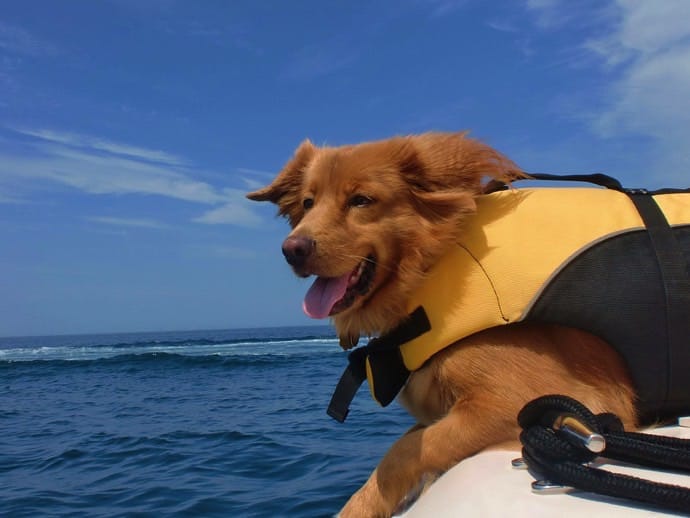
10. Keep your pets away from fireworks
Summer is the perfect time for barbecues, picnics, and overall outdoor celebrations, the biggest being the 4th of July, with fireworks being the most-awaited part. While we all enjoy a big bright bada boom, our pets tend to get scared and run away. Besides, fireworks are made with chemicals like potassium nitrate that can poison your curious pet if eaten.
If you put on your own fireworks display, keep your pet indoors and clear your yard of the fireworks debris before letting your pup or kitty back outside. When heading to the 4th of July celebration, leave your little guys safe from the noise in a quiet area of your home. You can keep an eye on your furkid from afar with an interactive pet camera or GPS pet tracking collar.
Emergency Fund by Petcube
When it comes to taking the best care of our beloved pets, the process can be intimidating and scary at first. What if something happens and you don't know what to do. Or what if you could have prevented some medical emergency from occurring to your furry family member?
Luckily, Petcube has thought of these struggles and launched an amazing subscription-based service that will help you overcome the threats and anxiety of being a pet parent.
Pet Emergency Fund by Petcube is a service that can provide you with security and safety for your pet. It allows you to get $3,000 in an emergency for all your pets for less than $1 per day. It is one of the best classic pet insurance alternatives. This service updated the traditional pet insurance to meet the most common emergency needs at an affordable price.
Have fun this summer!
Petcube products are designed for pet parents to care for their pets on the go. Petcube Bites 2 Lite and Petcube Play 2 let you watch, hear, play, train and give treats to your pet straight from your smartphone. With 1080p HD video, 2-way audio, night vision, and sound and motion alerts, you can monitor your cat or dog when you are away from home.
Was this article helpful?
Help us make our articles even better



